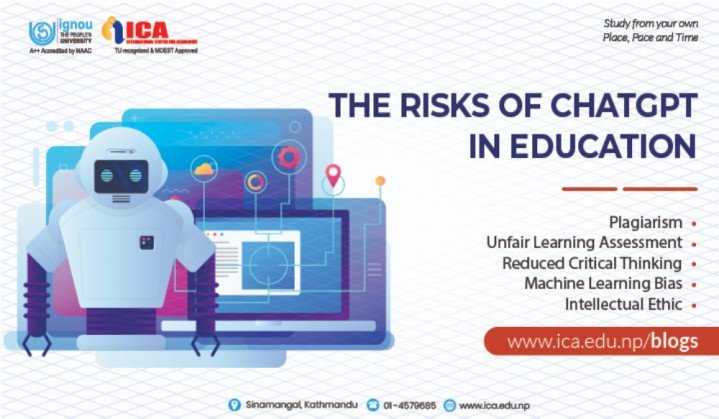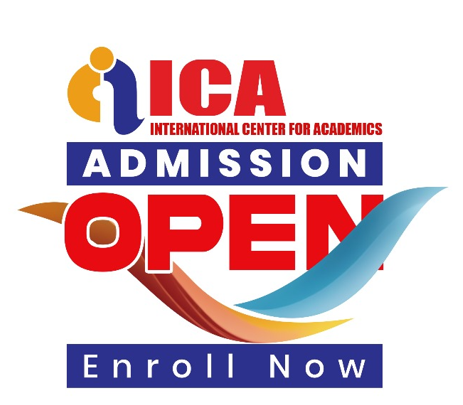
The Risks of ChatGPT in Education
ChatGPT is an Open AI (Artificial Intelligence) language interpretation model that relies on artificial intelligence to answer questions posted in its chat-bot platform. It is the talk of the town today. ChatGPT is a useful tool that supports research and reasoning. However, the risks associated with the use of this tool on the quality of the traditional education sector is looming large. Educators and academics are highly concerned over plagiarism and heavy reliance on technology and artificial intelligence as high risk factors that may affect the intellectual property rights through reduced critical thinking, creativity and problem solving abilities among students. Some of the major issues of concern are:
- Plagiarism
Students are lured to use ChatGPT for generation of human like responses to assignments, tests and content writing without properly citing and validating the sources. This can create an environment for students to create plagiarized and repetitive content which is a great hindrance on preserving Intellectual Property Rights and originality.
- Unfair Learning Assessments
Heavy reliance on artificial intelligence affects students’ learning and assessment outcomes. Creativity and learning curves are highly affected by heavy reliance on the artificial intelligence related platforms. It limits students’ abilities to think independently and hinders their problem solving abilities.
- Reduced Critical Thinking
Due to the ability of ChatGPT to provide reasoning and human-like responses, heavy reliance on contents from such platforms reduces the students’ individual abilities for critical thinking and articulations. This is detrimental to learning outcomes because it induces heavy dependency on artificial intelligence to provide reasoning and learning.
- Machine Learning Bias
Artificial Intelligence creates a learning bias because it uses contents available over the internet through compilation methods to provide coherence in responses. The biases present in the internal data of such platforms can produce biased or falsified (unverifiable) information which is detrimental to efficient learning outcomes.
- Intellectual Ethics
By copying contents, the intellectual property rights of original content creators are heavily jeopardized. Promotion of originality and though process is important in formal education. This aspect can be heavily affected by the irrational use of ChatGPT. This has led to a big question over academic integrity issues on contents produced. It is difficult to identify whether contents created by students are machine generated or their original work.
 01- 4579685/ 4583902/ 4578471/ 4591485
01- 4579685/ 4583902/ 4578471/ 4591485 support@ica.edu.np
support@ica.edu.np
 9818505224
9818505224


